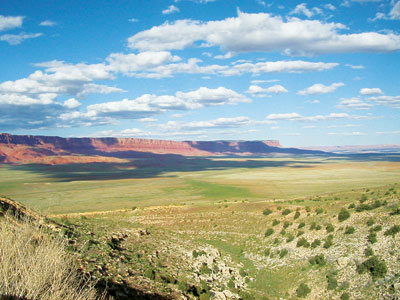All Nonfiction
- Bullying
- Books
- Academic
- Author Interviews
- Celebrity interviews
- College Articles
- College Essays
- Educator of the Year
- Heroes
- Interviews
- Memoir
- Personal Experience
- Sports
- Travel & Culture
All Opinions
- Bullying
- Current Events / Politics
- Discrimination
- Drugs / Alcohol / Smoking
- Entertainment / Celebrities
- Environment
- Love / Relationships
- Movies / Music / TV
- Pop Culture / Trends
- School / College
- Social Issues / Civics
- Spirituality / Religion
- Sports / Hobbies
All Hot Topics
- Bullying
- Community Service
- Environment
- Health
- Letters to the Editor
- Pride & Prejudice
- What Matters
- Back
Summer Guide
- Program Links
- Program Reviews
- Back
College Guide
- College Links
- College Reviews
- College Essays
- College Articles
- Back
Global Warming: Blessing in Disguise?
Climate change isn’t anything new. Since the industrial revolution, carbon emissions in the environment have grown exponentially. With support from proven research, it has been determined that the world is in fact getting hotter from human pollution. Global warming is destroying animal habitats, melting ice, and contributing to the frequency of extreme weather. More importantly, it creates a dangerous problem that future generations will eventually have to address. The longer the problem goes on, the more irreversible damages it will cause.
However, let’s look at things from a lighter perspective. Global warming could be a blessing in disguise. The world getting hotter may not be that bad. Instead of wearing layers of clothing to endure freezing nights during the winter, we can just sweat profusely when we step outside. More importantly, we can save money because air conditioning costs just that much less than heating. With rising carbon dioxide levels, that also means plants, fruits, and vegetables would flourish. With an abundance of fruits and vegetables, we could solve the world’s hunger crisis by shipping them to areas in need. These solutions are at the tip of our fingers, yet scientists have never provided any data to support them. The melting ice would reveal new locations for travel, such as Antarctica. The destruction of animal habitats there, resulting in fewer animals, would result in less predators to threaten human life. Since icebergs would also melt, people would finally travel across the ocean without fear of recreating a Titanic-like experience. While this excessive melting would contribute to the rising sea levels, there is an obvious solution. A simple wall can be built to prevent natural disasters, and the addition of melted ice would benefit countries suffering from the lack of clean water.
Seriously, though, and despite all the scientific evidence of global warming, some people are still oblivious to the truth. It seems as if this data doesn’t apply to a certain percentage of the population simply because they don’t believe in it. This is like a parent punching their kid when the kid has done nothing wrong and then ignoring the child’s wailing. When confronted, the parent claims wailing “is a part of human nature,” as if this completely negates their responsibility to care for their child after hurting them. Our planet is like the kid. Humans are hurting the Earth by polluting, littering, and destroying it with terrible carbon emissions, while some still audaciously deny the reality. Not only are they rejecting the fact that they punched their kid, but they are also rejecting any responsibility they hold as a parent to take care of their child. We humans are responsible for the consequences of our actions on the environment.
And there are many solutions to global warming that just haven’t gotten the publicity they deserve. The concept of generating electricity from greener natural resources is fascinating, and the fact that it isn’t being used to its full potential perplexes me. If we can harness energy and electricity directly from clean, renewable sources like water, wind, and sun instead of fossil fuels, why isn’t renewable energy more popular? If it isn’t yet cost competitive with fossil fuel energy, why isn’t there a greater sense of urgency for increasing funding towards research to improve the efficiency of water, solar, and wind products? Electric cars, solar panels, and smart grid technologies are some of humanity’s most promising innovations to fight global warming. With climate change on the rise, humans must search for ways to reduce our carbon footprint. Unless, of course, you do believe global warming benefits our daily lives. If so, all solutions are completely unnecessary, and we should begin to treat our children with the same level of abuse with which we treat our environment.

Similar Articles
JOIN THE DISCUSSION
This article has 0 comments.
